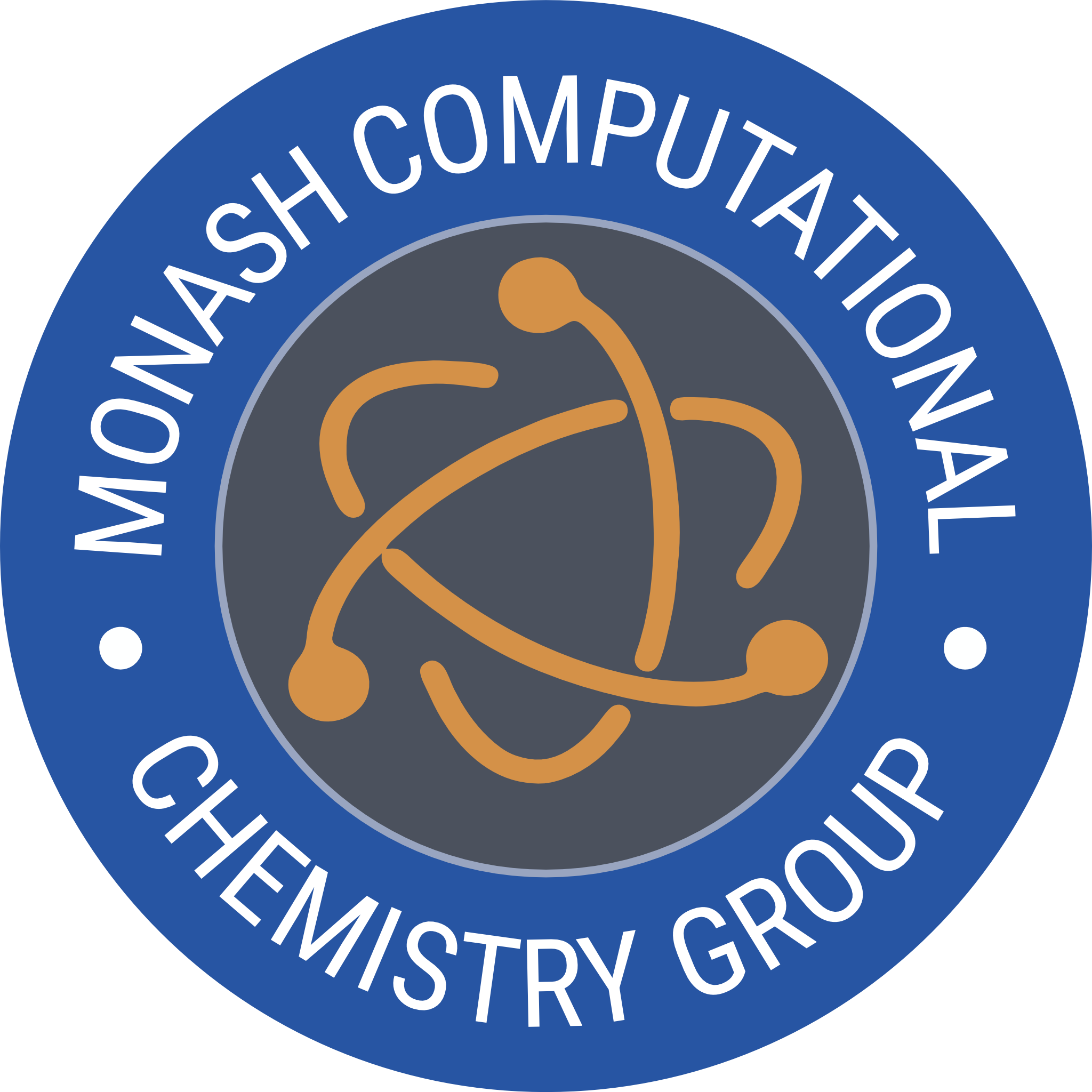Monash Computational Chemistry Group¶

Our main interest is to develop cost-effective and robust quantum chemical methods that can be applied to studying condensed systems and large organic molecules such as proteins and polymers.
Recently we have developed the spin-ratio scaled MP2 method, termed SRS-MP2, that can predict the strength of intermolecular interactions within 2 kJ/mol regardless of interaction type. The method works equally well for ionic and neutral systems. The beauty of the method is that it incorporates effects of basis set superposition error into the scaling coefficients. The robustness of the SRS-MP2 method has been proven for large-scale clusters of water and ionic liquids consisting of tens of molecules/ions.
Studies of large molecular systems being it clusters of molecular solvents or large proteins can be easily performed with the SRS-MP2 method when combining with the Fragment Molecular Orbital (FMO) Approach. FMO allows us to fragment molecular systems in manageable fragments. We have extensively studied the behaviour of the FMO approach for condensed systems and established the protocol for running these calculations reliably. To maintain high accuracy there are a few tricks that one needs to adopt when studying condensed systems. The main obstacle for these calculations is access to massively parallel computers as the FMO approach can easily achieve nearly linear scaling. To ensure short running times, the number of computer cores must proportionally increase with increasing number of molecules in the system due to the inclusion of two- and three-body effects.
In our group we are particularly interested two directions
- Further development of wavefunction and DFT methods for studying energetic and molecular properties of large-scale systems and
- Applications of the already developed methods to studying a variety of challenging chemical problems.
For Direction 1 here is what we are interested in developing further:¶
- Prediction of Lattice Energy using the FMO approach in combination with the SRS-MP2 method
- Use of machine learning to unraveling factors affecting polymorphism in molecular crystals
- Use of metadynamics within the FMO/SRS-MP2 framework to locate global minima for large-scale clusters of condensed systems
- Development of cost-effective DFT functionals for studying chemical reactions;
- Better DFT functionals for studying covalent bonding in Group 13 elements such as Ge-Ge
For Direction 2 here are the chemical problems that we strive to solve:¶
- Development of radical batteries based on nitroxide radicals
- Development of electrolytes for the Haber-Bosch process
- Design of Ionic Polymers for enhanced water and metal ion transport
- Design of metal clusters with increased catalytic ability
- Modelling of electric field to catalyse chemical reactions
- Use of machine learning in drug design
- Hydrolysis and mode of action of anti-cancer drugs based on Pt and Ruthenacarbenes
- Understanding the biological activity of insulin analogues with dicarba and alkyne bridges
For more detail see our Publications.